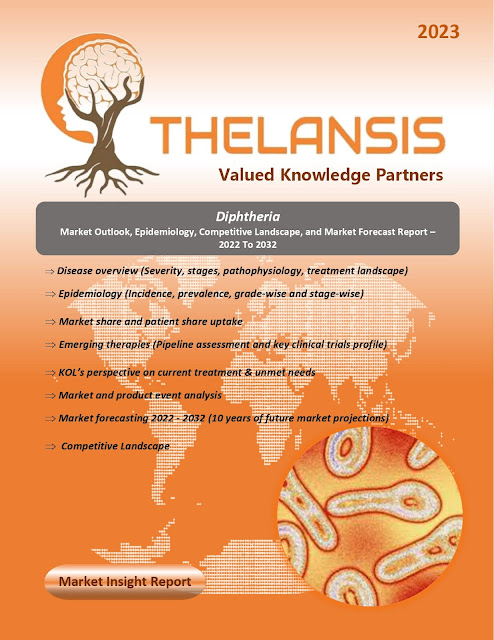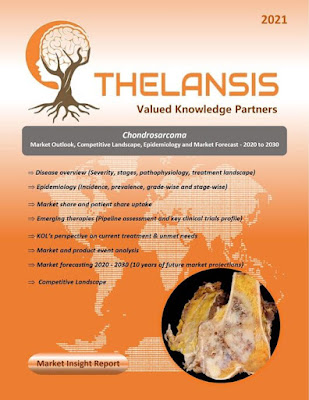Diphtheria – Market Outlook, Epidemiology, Competitive Landscape, and Market Forecast Report – 2022 To 2032
Diphtheria is a bacterial infection caused by Corynebacterium species, primarily Corynebacterium diphtheria, and is characterized by the production and systemic distribution of exotoxin. Exotoxin, a single polypeptide composed of subunits A and B, interferes with protein synthesis through ADP-ribosylation of elongation factor 2. The clinical manifestations of diphtheria vary depending on the anatomic site of infection, the immune status of the host, and exotoxin production. Corynebacterium diphtheria is a non-encapsulated, non-motile, gram-positive bacillus that forms club-shaped structures arranged in palisade formations. The primary host response to C. diphtheria results in the formation of a gray pseudomembrane in the throat and pharynx, a characteristic physical finding of the disease. Other Corynebacterium species, such as Corynebacterium ulcerans, can cause diphtheria. Diphtheria should be differentiated from other infections with similar presentations, including epiglottitis, retropharyngeal abscess, angioedema, infectious mononucleosis, pharyngitis, and oral candidiasis. The prognosis of diphtheria depends on various factors, including the age of onset, duration of symptoms, cardiac involvement, and systemic disease. The primary treatment for diphtheria involves the administration of antitoxins and antibiotics (such as erythromycin or penicillin G).
·
The estimated incidence of diphtheria in the
USA is 0.001 per 100,000 individuals after the introduction of vaccination.
Thelansis’s “Diphtheria Market Outlook,
Epidemiology, Competitive Landscape, and Market Forecast Report – 2022 To
2032" covers disease overview, epidemiology, drug utilization,
prescription share analysis, competitive landscape, clinical practice,
regulatory landscape, patient share, market uptake, market forecast, and key
market insights under the potential Diphtheria treatment modalities options for
eight major markets (USA, Germany, France, Italy, Spain, UK, Japan, and China).
KOLs insights
of Diphtheria across 8 MM market from the centre of Excellence/ Public/ Private
hospitals participated in the study. Insights around current treatment
landscape, epidemiology, clinical characteristics, future treatment paradigm,
and Unmet needs.
Diphtheria Market Forecast Patient
Based Forecast Model (MS. Excel Based Automated Dashboard), which Data Inputs
with sourcing, Market Event, and Product Event, Country specific Forecast
Model, Market uptake and patient share uptake, Attribute Analysis, Analog
Analysis, Disease burden, and pricing scenario, Summary, and Insights.
Thelansis Competitive Intelligence (CI) practice
has been established based on a deep understanding of the pharma/biotech
business environment to provide an optimized support system to all levels of
the decision-making process. It enables business leaders in forward-thinking
and proactive decision-making. Thelansis supports scientific and commercial
teams in seamless CI support by creating an AI/ ML-based technology-driven platform
that manages the data flow from primary and secondary sources.


Comments
Post a Comment